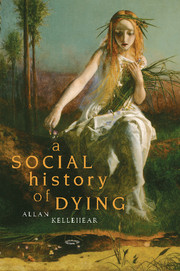Book contents
- Frontmatter
- Contents
- Acknowledgements
- Introduction
- Part I THE STONE AGE
- Chapter One The Dawn of Mortal Awareness
- Chapter Two Otherworld Journeys: Death as Dying
- Chapter Three The First Challenge: Anticipating Death
- Part II THE PASTORAL AGE
- Part III THE AGE OF THE CITY
- Part IV THE COSMOPOLITAN AGE
- Conclusion
- Bibliography
- Index
Chapter Three - The First Challenge: Anticipating Death
Published online by Cambridge University Press: 22 September 2009
- Frontmatter
- Contents
- Acknowledgements
- Introduction
- Part I THE STONE AGE
- Chapter One The Dawn of Mortal Awareness
- Chapter Two Otherworld Journeys: Death as Dying
- Chapter Three The First Challenge: Anticipating Death
- Part II THE PASTORAL AGE
- Part III THE AGE OF THE CITY
- Part IV THE COSMOPOLITAN AGE
- Conclusion
- Bibliography
- Index
Summary
What produces more activity from a person: anticipation or ignorance? What produces greater anxiety in a person: anticipation or denial and ignorance? Can a people, any people, remain uninterested, complacent or passive in the face of a known threat that they have witnessed time and again? Does death move people?
The answer to all these questions is that death motivates and activates people like little else because historically biological death has been viewed as no death at all, but rather, the most complicated and challenging part of living. At this ‘end part’ of living, after biological death but before the prospect of annihilation of the self through subsequent trials or transformation, lies a dangerous period of testing. Although this ‘dying’ means there is no turning back it can also mean greater things for you and me. Certainly the dying person can expect to see things or have encounters that he or she will never have seen or encountered before in life. The great question confronting all who die, then, is how to maximise the conditions under which the dying might succeed in their challenging and often daunting otherworld tests.
This final single question creates the greatest human cycle of challenge and response in which anyone can participate.
- Type
- Chapter
- Information
- A Social History of Dying , pp. 47 - 66Publisher: Cambridge University PressPrint publication year: 2007



